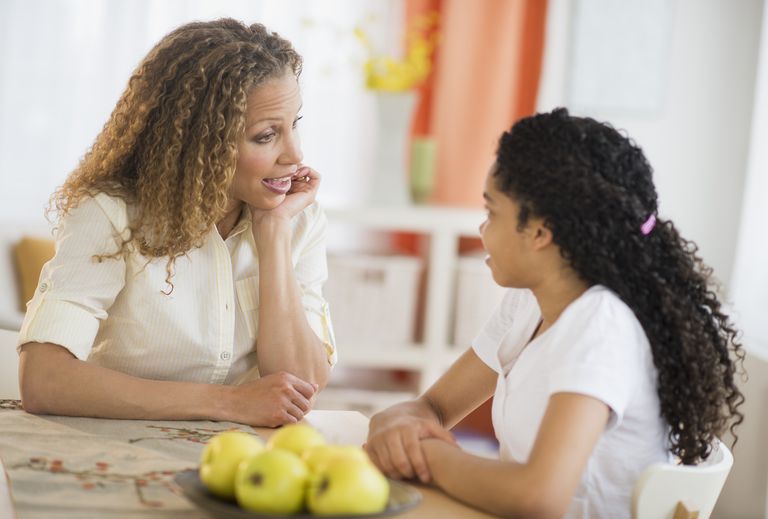
The news of tragic deaths of children and adults at Robb Elementary School in Uvalde, Texas, on Tuesday, May 24, is harrowing and heartbreaking. The deaths of innocent young people is indeed horrific and incomprehensible, even as we are still crawling out of a massive global pandemic and reeling from its aftermath.
Our kids have felt the weight of these macro forces of unrest in our nation and in our world. Unfortunately, the certainty of uncertainty has impacted their mental wellness. In fact, U.S. Surgeon General Vivek Murthy recently issued a national advisory that warned about the current mental health crisis our youth face.
Given all of these developments, it is especially important that we, as parents, develop a game plan to talk to our kids about unsettling events, whether those events involve violence in schools, the COVID pandemic, the conflict between Russia and Ukraine or the next global event. Of course, doing so implies that we have a game plan for our emotional response to these crises.
Thankfully, the tools for helping you and your kids navigate the anxiety that might accompany large-scale crises are the same tools to help us manage our anxieties about a big presentation at work or our kids’ fears about an upcoming math test, for example. And the strategies for open and honest conversations with your children are also quite timeless and apply to discussions about problems of all sizes.
For help, we turned to Rachel Delany, M.D., the inpatient service line chief of child services at Sheppard Pratt. Learn how to talk to your children about and navigate the anxieties that arise from tragedies such as the Robb Elementary School shooting, and small problems, like that upcoming math test.
Baltimore’s Child: What are some strategies that parents can use to help their kids have a healthy and honest yet age-appropriate conversation with their children about troubling major events?
Rachel Delany, M.D.: Talking through hard things provides a good opportunity for parents to show their kids what it means to experience and tolerate unsettling feelings. This can be hard for adults, too. Being comfortable with unsettling feelings may not be something that they have practiced. For help, parents should remember three key things: provide facts, listen and share feelings.
Let’s break that down a bit more.
- A parent can start with an introduction to the conversation by calmly explaining that you want to talk about something serious. The parent then explains the facts honestly and directly. Try to avoid vague terms or explanations that are too detailed for the child’s level of comprehension.
- The next step is to listen intently, without judgment. Let them ask questions. Remember, it’s OK if the answer to the question is “I don’t know.” Perhaps invite them to retell what they heard you say to offer space for clarifications.
- Finally, be sure to talk about how this news made them feel. Be sure to validate any feelings that your child shares. For example, if your child says they are scared, you can acknowledge that it’s normal to fear the unknown. But then reiterate your love for and protection of your child. Be honest about your own feelings, too. This can be a powerful moment to show children that it is OK to experience uncomfortable emotions. This is part of being human. We don’t need to bury these feelings. Throughout the conversation, keep reminding your child that, no matter what, you love them and provide the assurance that you will be there for them.
BC: Parents are understandably struggling to process the tragedy while at the same time trying to assuage the fears of their children. What are some strategies for parents to help them mitigate their anxiety while modeling calm for their children?
RD: Yes, it’s a lot! We should also remember that not only are parents carrying the added stress of this latest conflict, but they are also still managing the day-to-day stress that comes from being parents. Parents too often “empty their tank”—or their emotional reserve—by constantly serving the needs of their family while denying their own needs. It’s a lot to juggle. But there are some practical ways you can maintain your own mental wellness.
- First, be mindful of your intake of traditional and social media. Of course, it’s important to stay informed, but the steady diet of too much information can cause our anxieties to overwhelm us. Instead, focus on spending time in relationships with people who support you, such as your spouse, family, close friends or your faith community.
- Practice gratitude by actively turning your thoughts to appreciate the good things in your life. And invest time in activities that provide you with meaning and purpose. Spending too much time consumed by media can rob you of the time required to pursue these things that foster mental wellness.
- Finally, it is OK for your children to see that you’re upset or scared. It’s important that when they notice your feelings, you take time to communicate your feelings as you’re experiencing them. This helps them to understand that feelings don’t have to be pushed down. It’s OK to experience even uncomfortable, upsetting feelings.
BC: In spite of parents’ best efforts to protect children from information that may not be age-appropriate, children may hear or see news that is too mature for them to process. How can parents help children work through information or images that have caused fear or trauma?
RD: Check in with your kids often. Give them the space to talk about what they have seen and heard. If they share that something has upset them, be sure to listen to them and help them share their feelings. Answer any questions they may have by using plain language in a calm, simple but direct manner. Kids need the adults whom they love and trust to guide them in their understanding of what is happening. A child’s greatest desire is for safety within their relationships. Parents can reassure them of this truth in the face of other uncertainties.
If a child observes an image that is explicitly violent or has traumatizing content, I want to provide reassurance to parents. In spite of seeing or experiencing trauma, the research overwhelmingly points to the fact that humans are resilient. Recovery from traumatic events is the norm, rather than developing post-traumatic stress disorder. You and your children are far more resilient than you realize.
That said, parents should still be mindful of behaviors that would suggest that their child may not be adjusting or recovering following a traumatic event. These include disrupted sleep or fluctuations in mood, such as persistent irritability or regression of previously learned skills. These signs may indicate a need to seek professional help.
BC: What are some common sense strategies that families can use to foster mental wellness in spite of events such as acts of violence involving guns?
RD: We know that there are basic life habits that families should put in place to help children thrive. Kids should get enough sleep, eat a healthy and colorful diet, exercise, enjoy some hobbies, limit screen time and foster connections with their family members and close friends. Establishing these basic habits for your children is one of the best ways to foster their mental wellness.
Fostering your child’s ability to adapt in the face of major stressors or unexpected changes in life is a lot different than focusing solely on the promotion of happy feelings. Building their tolerance for uncomfortable emotions can have a more profoundly positive impact on a child’s development. We can foster resilience in our children by acknowledging their fear or uncertainty and reassuring them with our presence through these emotions rather than trying to quell them or immediately replace them with something more comfortable. A child who feels safe, secure and supported by a loving adult, who is not afraid to feel feelings alongside them, will be well-prepared not only for the global crises at hand but also for whatever future crises, failures or disappointments that may come. Parents can take comfort knowing that while these conversations may be hard and upsetting, they are cultivating resilience in their children that will help them grow and mature into adulthood.
BC: What resources do you recommend for parents to help them have productive conversations about difficult events with their children?
RD: The American Academy of Children and Adolescent Psychiatry has a wealth of resources in their Facts for Families guide, which includes information about Children and the News, Posttraumatic Stress Disorder and Terrorism and War: How to Talk to Children.










very nice post thank you